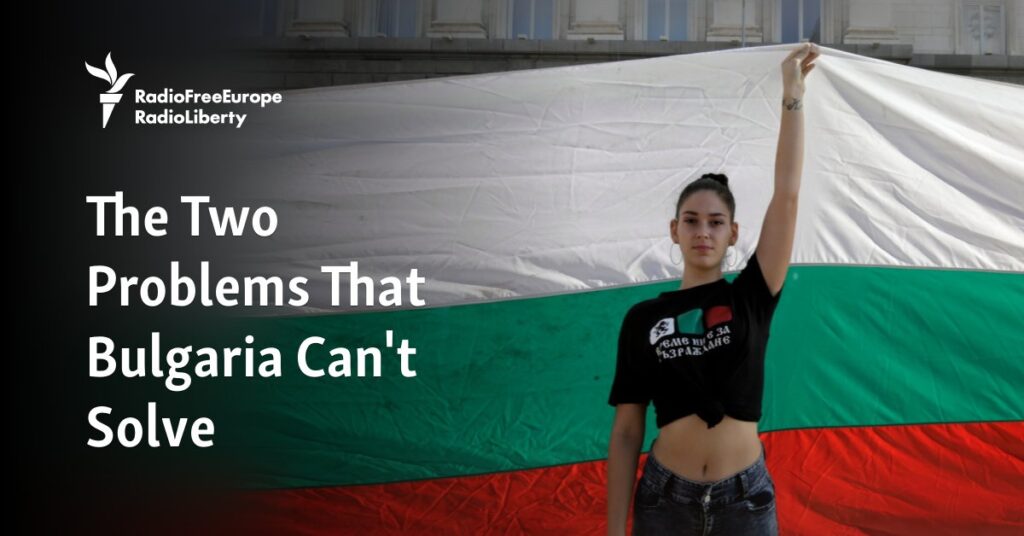Bulgarian Prime Minister Dimitar Glavchev
Over the last two years, Bulgarian politics has been inert, with opinion polls putting the coalition of two center-right parties, GERB and the Union of Democratic Forces (SDS), in first place, followed by the reformist We Continue the Change — Democratic Bulgaria (PP-DB) coalition. The liberal Movement for Rights and Freedoms (DPS) — which traditionally represents Bulgaria’s ethnic Turk and Muslim populations and is led by business tycoon and U.S.-sanctioned politician Deylan Peevski — and the far-right, pro-Russian Revival party are vying for third place.
The smallest party now in the National Assembly, Bulgaria’s unicameral parliament, is the populist There Is Such a People (ITN) party. According to a recent Gallup poll, the party attracts around 5 percent support and, in the next elections, could exceed the 4 percent threshold required to enter parliament. ITN emerged three years ago as a populist party opposed to GERB, which dominated Bulgarian political life from 2009.
Death Of ‘The Notary’
Rampant corruption has blighted Bulgaria for years, with dodgy public-procurement procedures, unregulated lobbying, and the reported buying of votes. For years, Bulgaria was the most corrupt country in the European Union, according to Transparency International’s Corruption Perceptions Index, but in 2023, it came in second to last, with Hungary winning the wooden spoon.
Tackling graft is complicated by the state of the judiciary, which is widely criticized for being beholden to the interests of politicians. On January 31, Martin Bojanov, a shady figure who was implicated in property fraud and nicknamed “the Notary,” was killed in Bulgaria’s capital, Sofia. After his death, evidence emerged that Bojanov ran a network of influence-peddling inside the judiciary, even allegedly owning a private club to which prosecutors, judges, and police officers all had access. In exchange, Bojanov reportedly secured a certain level of immunity from investigation by police or prosecutors.
Regardless, in Bulgaria, such cases are rarely solved, with advocates of judicial reform saying that it is the investigators that actually need investigating, with the rot reaching all the way to the top. Interior Minister Kalin Stoyanov has been slammed for concealing information about “The Notary’s” ties to his ministry. Yet, the GERB and DPS parties have rejected the criticism, and, with their support, Stoyanov remains a minister.
Martin Bojanov was known as ‘The Notary’
Such allegations — along with the inevitable denials — are part and parcel of Bulgarian politics. While newer political parties such as We Continue the Change have come to power on the back of widespread public dissatisfaction with corruption and have campaigned on anti-corruption agendas, they have had little success with reforming the judiciary.
Politicians from the reformist PP-DB coalition have accused the leaders of GERB and DPS, Boyko Borisov and Peevski, respectively, of coopting the Prosecutor-General’s Office and the security services by appointing their loyalists to top roles.
In response, Borisov and Peevski have accused PP-DB of wanting to control the judiciary themselves. The parliament created a special commission to investigate the “Notary” affair on February 7, but the meetings were boycotted by representatives of GERB and DPS, with the support of ITN and Revival.
Little Appetite For Reform
With the new justice minister, Maria Pavlova, it’s unlikely that a new law on the judiciary will be passed by this parliament. In her previous role, she served in the Prosecutor-General’s Office, a powerful lynchpin of the judiciary. The office is staunchly against judicial reforms, as such changes would significantly diminish its powers.
And despite the PP-DB bloc pushing for a special parliamentary commission to investigate the building of the TurkStream pipeline, the GERB-SDS government and former Prime Minister Borisov, who were in power when the pipeline was built, have refused to accept any issues related to the project.
The pressing issues of corruption and Russian influence are often entwined. “There is no doubt that the actions surrounding TurkStream were [shared] between Borisov and Peevski,” Denkov told RFE/RL’s Bulgarian Service in a recent interview. “Many things connect them. And some of these things are related to consideration of Russia’s interests, in some cases to the detriment of Bulgarian interests.”
Bulgaria’s next elections will be held on June 9, and citizens won’t just vote for representatives in their national parliament but also in the European Parliament.
Bulgarians could be forgiven for their skepticism. Over the last three years, the National Assembly has managed to elect only two governments. Both fell just as they were trying to undergo reforms, fight corruption, and break the country’s reliance on Russia for energy and security.
If nothing changes in the next two months, forming a stable government after June will be difficult, not to mention forming a government that has the will and strength to at least attempt reform. The previous government collapsed after the PP-DB demanded a timetable for changes to the security services and anti-corruption reforms, and GERB-SDS refused to agree.
If no government is formed at all, then Bulgaria will hold yet more elections, possibly as soon as October, with the caretaker government remaining in power.
For Bulgaria, there is a huge amount at stake. If reforms are sluggish at best, the country’s goals of introducing the euro in 2025 and opening the land borders to Schengen will be much harder to achieve.
Source link : https://www.rferl.org/a/bulgaria-corruption-russian-influence-elections/32919014.html
Author :
Publish date : 2024-04-24 07:00:00
Copyright for syndicated content belongs to the linked Source.
